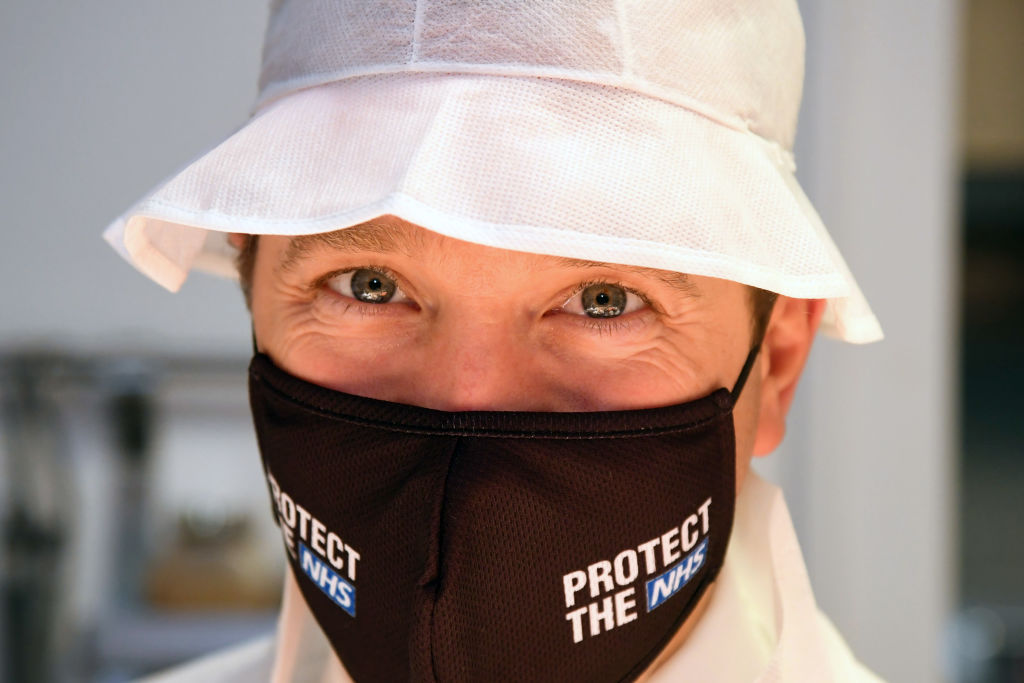What could possibly go wrong with the coronavirus vaccine? Boris Johnson has boasted that the UK is ‘towards the front of the pack’ when it comes to orders of the Pfizer/BioNTech inoculation, and health chiefs say they hope to start rolling it out from December, if it gets approval.
The biggest ‘if’ now isn’t so much the approval process as it is the government’s ability to deliver a vaccination programme at such a big scale. So far, large government projects involving coronavirus have not inspired a great deal of confidence. First there was the government’s insistence that it was on top of demand for personal protective equipment for hospitals and care homes. Then there was the – ongoing – saga of the Test and Trace programme. This definitely falls into the category of ‘beleaguered’ now, and things aren’t improving: the last week of October was its worst ever, failing to reach more than 40 per cent of infected people.
TAT boss Dido Harding was giving evidence today to a joint meeting of the health and social care select committee and science and technology committee, and accepted that her system had not predicted the scale of demand for testing once schools returned in the autumn. But despite this admission, she was unable to offer MPs on the two committees an answer on its planning for the next surge in demand. Her defence of the programme included arguing that ‘this is a retail network that didn’t exist six months ago, that is now larger than the whole of Asda’s food business’. But TAT’s main goal isn’t to be big: it is to be competent, and Harding has not been able to show that it can do that. Other irrelevant achievements cited by ministers include Harding working extremely long hours on the project, which Polly Mackenzie takes apart in this excellent piece.
With this track record of delivering large-scale programmes, why is the government at all confident that it won’t be the spanner in the works for vaccinations? Today Matt Hancock updated the House of Commons on the latest developments in the vaccine trial and in the government’s testing regime. He told MPs that from now on, NHS staff will be tested twice a week for coronavirus, and that steps were being taken to make more routine tests available to the wider public. But he faced questions from MPs about whether the NHS was actually ready to embark on such an enormous programme of vaccination from December.
Both shadow health secretary Jonathan Ashworth and Public Accounts Committee chair Meg Hillier asked Hancock to explain how he was confident that vaccinations wouldn’t go the way of other big government endeavours in fighting the virus. Ashworth said:
‘May I gently suggest to the Secretary of State that the roll-out of test and trace and the early procurement of personal protective equipment was not as smooth as it might otherwise have been? None of us constituency MPs wants to see booking systems overloaded and our constituents told to travel hundreds of miles for a jab, like we saw earlier this year with testing, so what is the plan? Will he publish a strategy? Can he tell us how much will be invested in the Covid vaccination programme?’
Hancock’s response was that the distribution of the vaccine will be a ‘huge challenge’ but that the government had ‘a good degree of confidence’ about the ‘cold-chain requirements’ (the vaccine must be stored at -70 degrees) being in place for the roll-out. He told Hillier that the Major Projects Authority was involved and that this vaccine ‘builds on the annual roll-out of the flu vaccine – it is just bigger and needs to be done faster.
Of course, a bigger programme that needs to be delivered more quickly isn’t a mere detail as Hancock’s ‘just’ suggested. There will be many more questions in the coming weeks about whether an NHS that ministers have said is on the brink of being overwhelmed is really going to be able to ‘just’ get on and deliver the vaccine.







Comments